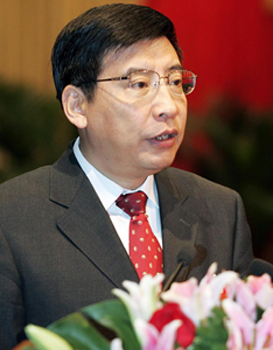 Miao Wei, now Party chief of Wuhan City is an example. Miao is the former CEO of Dongfeng Motor Group. In July 2003, Miao, with Carlos Ghosn, president of Nissan Motor Co., put together a Dongfeng-Nissan joint venture. Dongfeng Motor Co., Ltd. was created with capital of 16.7 billion yuan. Dongfeng and Nissan each hold 50 percent stakes in the venture. Unlike other domestic companies, which usually hold back part of their assets and businesses from joint ventures with foreign counterparts, Miao-headed Dongfeng merged all its assets and staff into the new joint company. His approach was hailed as a model for SOE reform by the State-owned Assets Supervision and Administration Commission (SASAC).
Miao Wei, now Party chief of Wuhan City is an example. Miao is the former CEO of Dongfeng Motor Group. In July 2003, Miao, with Carlos Ghosn, president of Nissan Motor Co., put together a Dongfeng-Nissan joint venture. Dongfeng Motor Co., Ltd. was created with capital of 16.7 billion yuan. Dongfeng and Nissan each hold 50 percent stakes in the venture. Unlike other domestic companies, which usually hold back part of their assets and businesses from joint ventures with foreign counterparts, Miao-headed Dongfeng merged all its assets and staff into the new joint company. His approach was hailed as a model for SOE reform by the State-owned Assets Supervision and Administration Commission (SASAC).
Miao Wei's other eye-catching innovation was "openly and legitimately establishing a Party organization in a joint venture". When negotiating with Nissan regarding the establishment of a Party organization in the future joint company, Miao-headed Dongfeng stuck firmly to its position. Finally Nissan's negotiators, after studying the CPC Constitution, came into line with Dongfeng and signed the relevant agreements. Miao's approach was applauded by the central authorities and recommended to other SOEs and Sino-foreign joint ventures.
It is therefore reasonable to hope that managers turned senior officials will make big changes to governments and will rejuvenate the rigid bureaucracy with their innovative ideas and practices.
When these former CEOs go into politics, they are inclined to look at social issues from an entrepreneur's point of view. They are pragmatists for whom public satisfaction is the key to assessing public services. With their managerial expertise, they will change the economic and political landscapes of the regions they are responsible for.